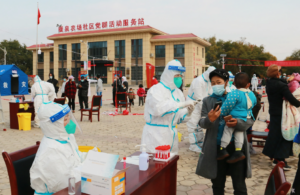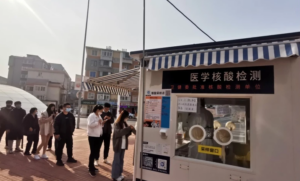
Hefei, Anhui Province, the implementation of epidemic prevention and control of flat command adhere to scientific prevention and control to protect daily life
At 8:00 p.m. on the 21st, Tang Yanhong, who came to Hefei from abroad, drove his car into the square outside the Shushan high-speed road crossing, and Zhou Cast, a staff member assigned to the special shift at the road crossing in Shushan District, immediately went up to check the health code, trip code and nucleic acid test report. “Please go to the left side of the high-speed entrance nucleic acid testing point to participate in the ‘landing inspection’.” Zhou Cast said that Tang Yanhong was from a low-risk area and would be released after the on-site nucleic acid test.
Recently, the risk of importation of the epidemic in Hefei has increased. The company’s main goal is to provide a comprehensive range of products and services to the public. The company has also been working on the development of a new product, the “Hefei”, to ensure that no one is left out.
At the same time, Hefei adhere to the implementation of flat command of epidemic prevention and control, daily video conferencing short meeting, for the problem proposal, while reviewing and discussing the improvement, all matters on the spot decision and deployment, 13 work task force classification and disposal, all instructions directly to the front line, with the fastest speed control and cut off the chain of transmission of the epidemic, firmly guard the bottom line of not occurring large-scale epidemic.
Hefei nucleic acid testing as the most important means of early detection of the epidemic, the construction of the “landing inspection, tracking inspection, key inspection, undercover inspection, out of doors inspection” five inspection warning system, and strive to “early detection” to ensure “early detection “.
Hefei 12345 mayor hotline as a fast channel for the masses to reflect their demands, receiving more than 40,000 hotline calls every day, responding to the concerns of the masses in a timely manner, to protect the reasonable needs of the masses. For the elderly living alone, the disabled, the mentally ill, orphans, left-behind children, pregnant women, hemodialysis patients, cancer patients and other eight types of special groups, the organization of regular “knock on the door action”, dedicated to ensure emergency medical care and three meals a day.


Average Rating